Retro Replay Review
Gameplay
The core gameplay of this Space Invaders variant remains faithful to the Taito original, featuring the familiar rows of descending aliens, three defensive barriers, and your lone spaceship that can fire only a single shot at a time. As in the classic, precision and timing are key: you must take out entire formations before they reach the bottom of the screen. The inclusion of a periodic flying saucer adds a dynamic scoring opportunity, rewarding quick reactions with bonus points.
(HEY YOU!! We hope you enjoy! We try not to run ads. So basically, this is a very expensive hobby running this site. Please consider joining us for updates, forums, and more. Network w/ us to make some cash or friends while retro gaming, and you can win some free retro games for posting. Okay, carry on 👍)
One of the most notable additions is the availability of nine distinct difficulty levels. This range lets both newcomers and seasoned veterans find a challenge that suits their comfort level. At lower levels, alien movement is more forgiving, giving players extra time to line up shots and preserve their shields. At the highest settings, the invaders move at a breakneck pace, demanding near-perfect reflexes and strategic barrier management.
While the gameplay loop is undeniably addictive, purists may notice the absence of the iconic accelerating “heartbeat” audio cue found in Taito’s original. This heartbeat famously signaled the increasing pressure as the aliens approached, and its omission here slightly dulls the rising tension. Nevertheless, the steady rhythm of alien marching still drives you to improve your score and push your skills to the limit.
Graphics
Visually, this version opts for a bold palette on a stark white background: an orange ship, cyan-colored invaders, and magenta barriers. The high-contrast scheme ensures clarity, making it easy to track enemy movements even in hectic moments. The bright colors also give the game a modern, almost neon-like look, distinguishing it from darker arcade cabinets of the era.
However, the decision to forgo the original’s ever-changing invader hues means there’s less visual variety as you progress through levels. In Taito’s release, color shifts helped signal level transitions and added a subtle sense of escalation. Here, the static palette keeps everything uniform, which can feel underwhelming after extended play sessions.
Despite these omissions, the sprite work remains crisp and functional. Each alien type is clearly identifiable, and the flying saucer quickly becomes the most attention-grabbing object on-screen when it glides across the top. The barriers show visible damage as they take hits, giving you immediate feedback on which defenses remain—and which areas you must abandon.
Story
True to its arcade roots, the narrative in Space Invaders is minimalistic, relying on implied stakes rather than an explicit storyline. The premise is simple: a relentless alien horde is marching toward Earth, and it’s up to you to stop them. There are no cutscenes or text blocks—everything unfolds through gameplay action and score tallies.
This lack of narrative depth keeps the focus firmly on player skill and pattern mastery. While some modern gamers might crave a richer backstory or character motivation, many will appreciate the purity of an uncluttered arcade experience. The absence of dialogue or exposition means you can jump straight into the action without any setup.
For those interested in lore, the game’s manual or packaging (depending on your platform) often fills in a few paragraphs about the invasion scenario, but this remains purely optional reading. Ultimately, the story serves as a backdrop to the high-score chase, and the thrill comes from outlasting ever-faster waves rather than unveiling plot twists.
Overall Experience
At its heart, this Space Invaders variant delivers a straightforward, challenging shooter experience that will resonate with fans of arcade classics. The controls are tight, the difficulty curve is adjustable, and the core loop of clearing waves feels as compelling today as it did decades ago. Whether you’re seeking a quick nostalgia hit or planning marathon sessions, the nine difficulty settings ensure broad appeal.
Some purists may lament the missing heartbeat audio and static color scheme, but these omissions don’t fundamentally break the addictive gameplay formula. Instead, they present a slightly streamlined take on a venerable classic—one that may feel fresher to players encountering it for the first time. The visual clarity is a welcome update, even if it sacrifices some of the original’s dynamic charm.
Overall, this Space Invaders offers a solid, no-frills arcade challenge that’s easy to pick up yet hard to master. If you’re looking to test your reflexes, hone your pattern recognition, and chase high scores, this version stands as a worthwhile addition to any collection—especially for those eager to experience or relive one of gaming’s most iconic shooters.
 Retro Replay Retro Replay gaming reviews, news, emulation, geek stuff and more!
Retro Replay Retro Replay gaming reviews, news, emulation, geek stuff and more!
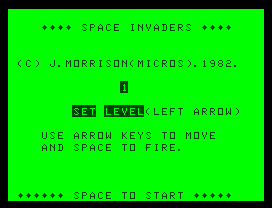
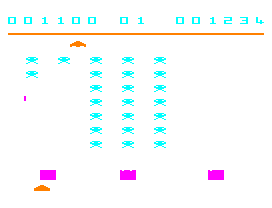
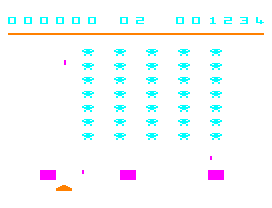
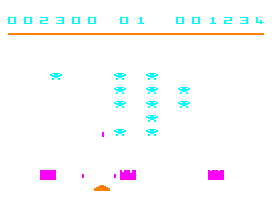
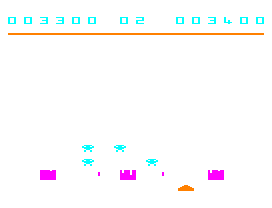

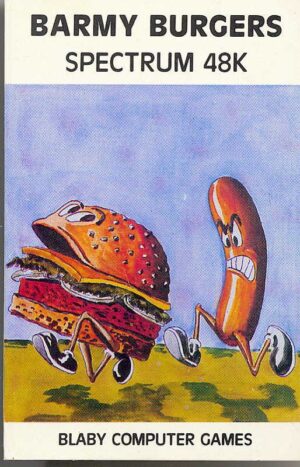

Reviews
There are no reviews yet.